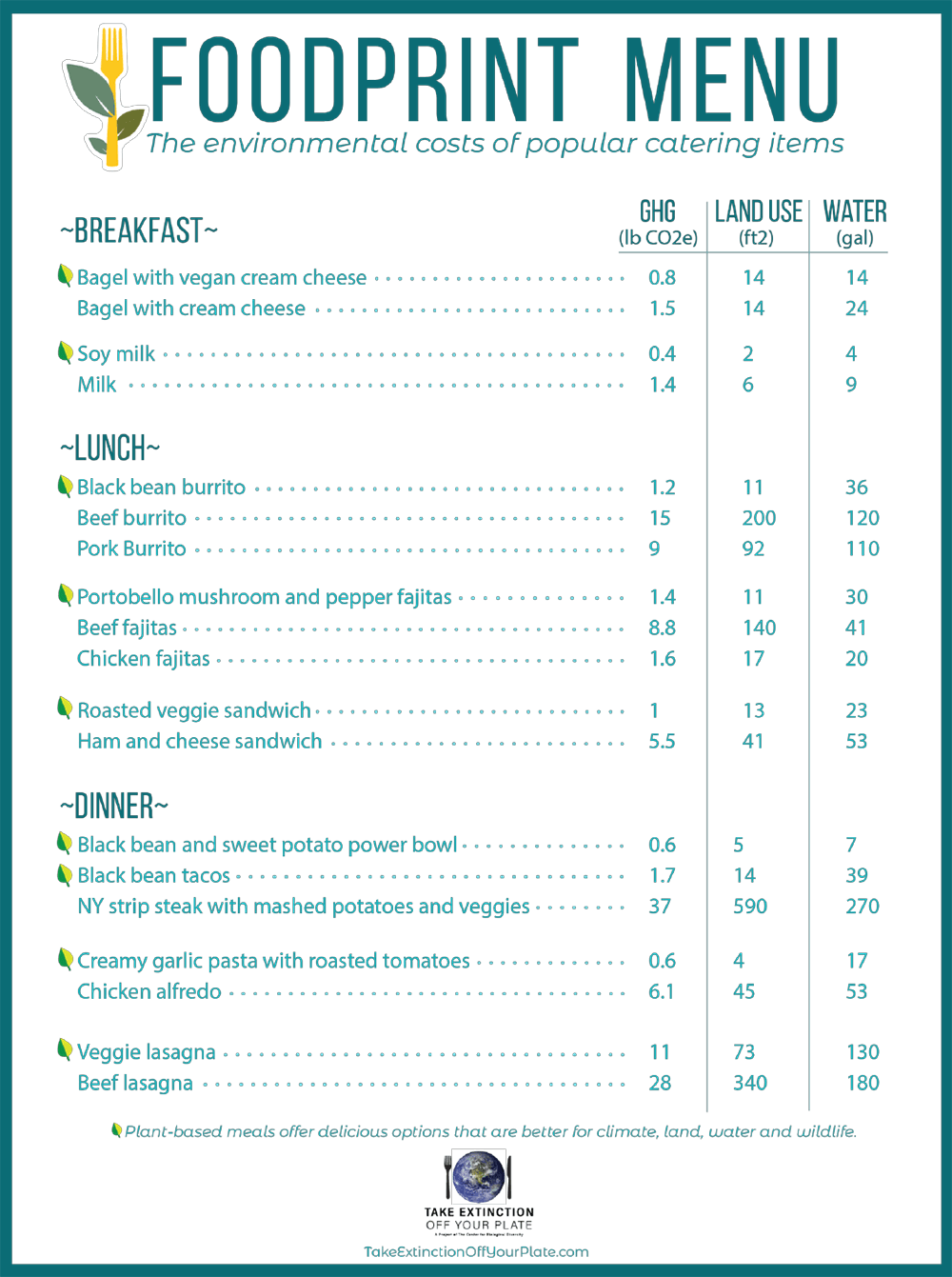
Serving portobello mushroom and pepper fajitas instead of beef fajitas reduces the amount of greenhouse gases generated by more than 75 percent, according to a new report by the Center for Biological Diversity.
When it comes to reducing the amount of energy it takes to produce the food served at events, even little tweaks can have a big impact.
Just replacing dairy-based cream cheese on the morning bagels with vegan cream cheese cuts the amount of greenhouse gases generated by nearly a half, according to a new report, Catering to the Climate, produced by the nonprofit Center for Biological Diversity. And serving fajitas made with portobello mushrooms and peppers instead of beef reduces the amount of greenhouse gases generated by more than 75 percent and uses 92 percent less land to produce.
The positive benefits of replacing meat and milk-based food products with plant-based menu items keeps growing along with event size and as more plant-based alternatives to meat and dairy are served. When feeding 500 people, a low-impact menu can save five acres of natural habitat, avoid the emissions equivalent to 50 people flying round-trip from New York City to Chicago, and conserve nearly 100,000 gallons of water from irrigation and food processing, according to the report’s authors, Isaac Emery, founder of Informed Sustainability Consulting LLC, and Jennifer Molidor, a scientist at the Center for Biological Diversity
It’s a critical issue, the report’s authors add, because, according to the United Nations’ Intergovernmental Panel on Climate Change, the world can’t meet its climate goals without significantly reducing meat consumption and the emissions associated with animal agriculture. In the U.S., 80 percent of farmland is used for raising animals and animal-feed crops, and half of all consumed water goes toward meat production.
The impact of the $11 billion-a-year catering and events industry — including conferences, weddings, and corporate events, as well as school dining halls — is so large, that substituting plant-based menu items can have a “significant environmental impact,” the study’s authors write. Yet most venues don’t offer them, they add.
What’s Stopping Us?
In creating the report, the Center for Biological Diversity surveyed a small group of meeting planners and found that 83 percent would prefer a streamlined approach of offering an entirely plant-based menu to all attendees or offering meat and dairy as “opt-ins,” compared to adding more plant-based options to conventional menus.
But 40 percent of respondents identified venue limitations or availability of food as obstacles to offering non-meat-based menus. If venues and caterers offered “greener” options, event planners would be more willing to switch to low-impact menus, wrote the report’s authors.
RELATED: How the Virginia Beach Convention Center Created a 100% Plant-Based Menu
And the leading obstacle cited by planners was the perception that event attendees may not be satisfied with plant- based options — 37 percent of the planners pointed to attendee expectations and their response to alternatives as obstacles, along with donor and board objections (4 percent). Two percent cited higher costs as barriers.
The more positive experiences that attendees have with plant-based menus, and the better-trained that chefs become in preparing delicious plant-based options, the faster that will change, write the report’s authors.
“Public demand for plant-based, low-carbon menus is growing quickly,” Molidor said. “Even small changes in purchasing, like replacing dairy with plant-based milks and cheeses, can bring substantial benefits to suppliers and their clients. When the event and catering industry serves plant-based menus, it’s an environmental and culinary success.”
Barbara Palmer is deputy editor of Convene.

This page from the Catering to the Climate report compares the environmental costs of common catering items and those of plant-based alternatives. GHG stands for greenhouse gases. (Center for Biological Diversity)
